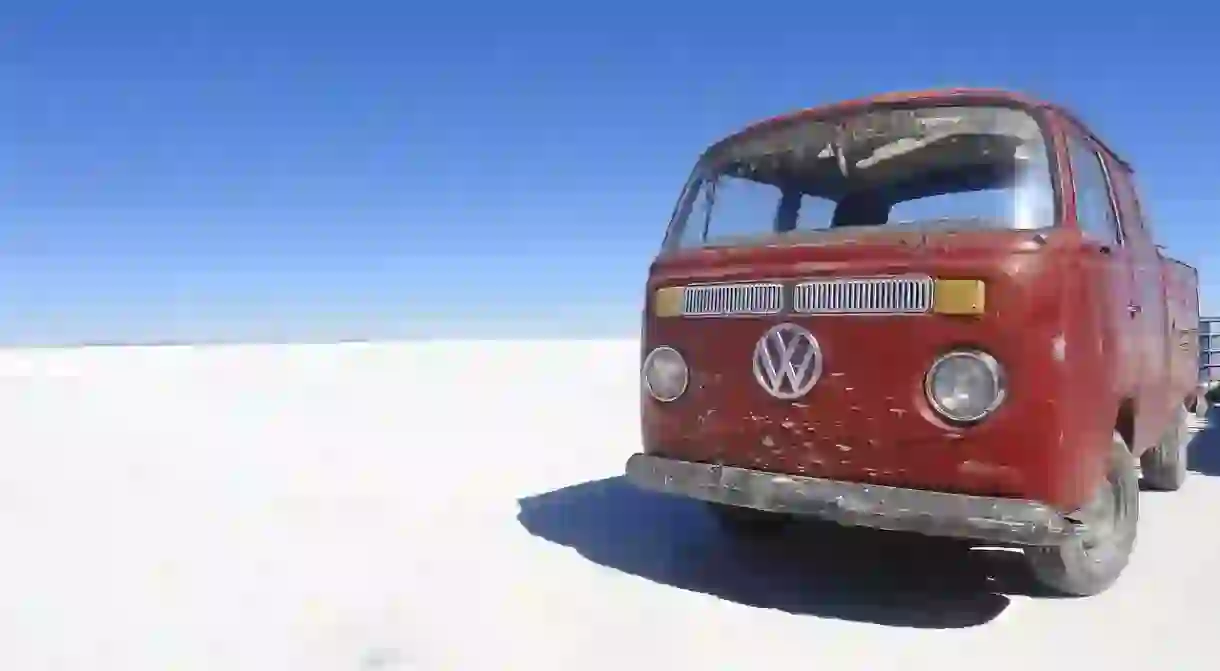15 Things to Know Before Going to Bolivia

Bolivia can be a challenging country to explore at times. Buses run on their own schedule, the climate is unforgiving, bureaucracy is rife and not many people speak English. However, with a little preparation and a positive attitude, these obstacles can be overcome. What’s more, any difficulties you face on the road will pale in comparison to the rewarding experiences this enchanting country has to offer. Read on for our list of things you need to know before coming to Bolivia.
It gets cold
A lot of Bolivia’s most popular tourist attractions are at extreme altitudes which means it gets pretty chilly, so pack appropriately. Heating only exists in the most plush hotels, but there are plenty of snug alpaca hats and jumpers on sale to ward off the cold.

It gets hot, too
Bolivia has a diverse topography so don’t expect everywhere to be cold. There are a number of sweltering lowland regions where it definitely won’t be comfortable to wear that trendy alpaca jumper.
Altitude can make you sick
Lots of people feel the effects of altitude sickness upon arriving in Bolivia’s altiplano (highland plains). There are plenty of ways to mitigate the effects such as avoiding alcohol, eating small meals, ascending slowly, avoiding strenuous exercise and drinking coca tea.

It rains in summer
If traveling in the wet season between November and March, expect to get wet. There could be anything from a quick shower in the afternoon to a drenching that lasts for days on end. Keep a poncho or umbrella on hand and be especially mindful when hiking through the wilderness.
Long bus trips can be challenging
Bolivian buses can be testing at times. On board toilets are closed, delays are common, the heating doesn’t work and there’s always at least one person with their window open as outside temperatures drop below freezing. Bring warm clothing for overnight trips through the altiplano and don’t drink too much liquid as it could be hours before the next rest stop.
Things don’t always go to plan
Strikes and protests are extremely common, while wet weather can bring bus travel to a standstill. Leave a couple of days’ flexibility in your travel plans for when things don’t happen as expected.

Food preparation may not be hygienic
Due to poor regulation, control and a lack of education, food hygiene practices tend to be lower in Bolivia than the developed world. Those with a sensitive stomach should ensure to seek out places that cook their food on the spot and have a high customer turnover.
You might need a visa
American citizens require a visa to enter Bolivia, which can be obtained on arrival. Officially, this involves a return itinerary, hotel reservations, passport size photos, a letter of invitation, proof of a yellow fever vaccine, proof of sufficient funds (credit card or bank statement) and US$160 in cash. In reality, immigration officials usually just take your cash and passport photo then wave you on through.
Most European countries, Australia and New Zealand do not require a visa. Check with the Bolivian immigration website (Spanish) or your local embassy for more details.

Bureaucracy is a national sport
Anyone coming for anything other than tourism should be prepared to tackle a mountain of paperwork. Tourists who want to stay more than 30 days have to extend their visa at an immigration office, up to a maximum of 90 days. Bring two photocopies of the photo and entry stamp pages of your passport and ask for an ‘Extensión de visa de turista.’ Nobody really knows why this process exists.
How to access your money
In Bolivia, cash is king. Credit cards are only accepted in the swankiest hotels and restaurants, so get used to using ATMs. These are readily available in all reasonably sized towns but are unreliable (if they exist at all) in remote areas. Keep some extra cash and a debit card tucked away separately in your luggage in case of emergency.

There’s a language barrier
Most people working in the tourism industry speak passable English, although almost everyone else speaks little to none. Learn a few basic phrases in Spanish and get as much information as possible from the hotel receptionist. With a little patience and good humor, the language barrier shouldn’t cause too much trouble.
When to haggle
Haggling is only really acceptable at street markets, hotels and travel agencies. Unlike in Asia, haggling in Boivia is a relaxed verbal exchange which is only likely to end in a small discount. Also, remember that a few extra dollars means much more to them than it does to you.
Leave the tent at home
Outdoor equipment can be rented for cheap anywhere there is a demand. Quality can vary so be sure to check everything carefully. Aside from hiking boots and clothing, only those who plan on doing a lot of camping should consider bringing their own equipment.

Petty theft exists
Bolivia is actually a very safe country. Having said that, petty theft is a problem in any developing nation. The most common things to look out for are:
Bag snatches: keep fancy cameras and day packs wrapped around a limb at all times.
Fake police: don’t believe anyone claiming to be an undercover police officer. Just ignore them and walk away.
Theft by distraction: someone spilling sauce or dirt to distract you while an accomplice lifts your wallet is a common technique.
Patience is a virtue
Things often don’t go to plan in Bolivia so try to think of any inconvenience as being part of the travel experience and approach it in a positive way with a sense of humor. Get used to running on ‘Bolivian time’ for a much less stressful traveling experience.













